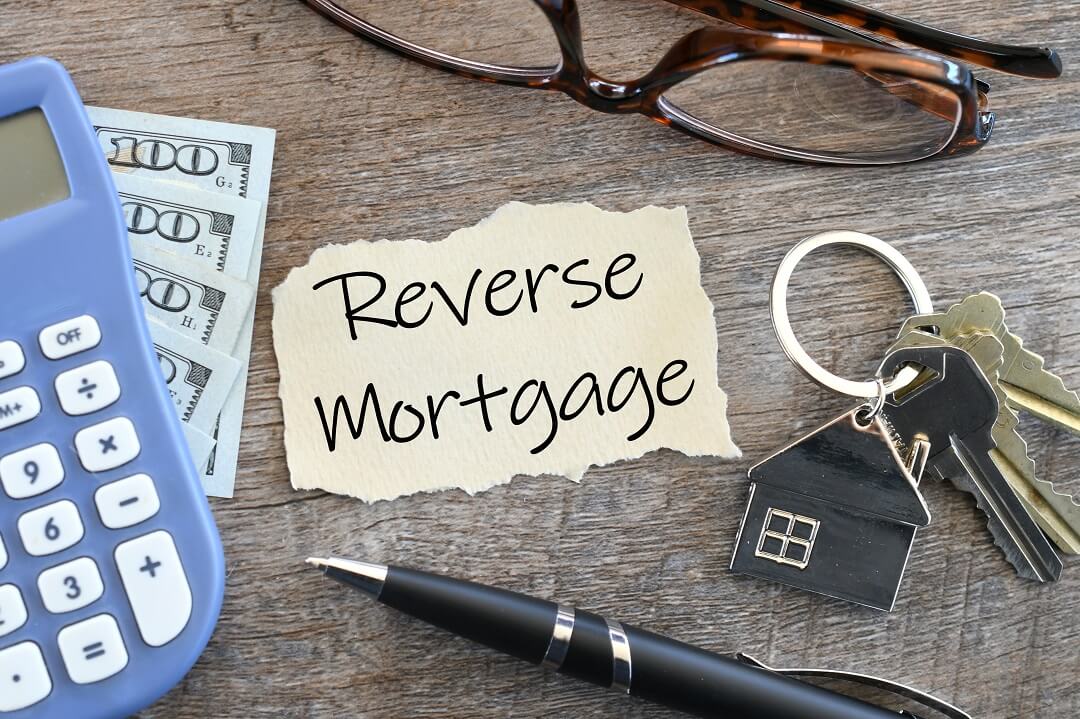You have worked your entire life to build equity in a high-value home. As you reach retirement, you likely have a bucket list of new hobbies, fun adventures, or places you would like to visit. But how exactly do you plan to fund all these amazing adventures? A jumbo reverse mortgage may be the answer you are looking for. What is a jumbo reverse mortgage loan, and how do you qualify?
Key takeaways
- A jumbo reverse mortgage is a loan for older homeowners to borrow against high-value properties.
- These loans have fewer regulations, allowing for more freedom but less borrower protection.
- Eligibility requirements include being at least 55, using the home as primary residence, and having at least 50% equity.
- Pros include larger borrowing amounts and no mortgage insurance, cons include higher interest rates and increased risk of scams.
What is a jumbo reverse mortgage?
A jumbo reverse mortgage is a supersized reverse mortgage that allows older homeowners to borrow against their equity in their high-value properties. Unlike traditional reverse mortgage loans, these loans are considered private or proprietary and are not bound by the regulations of government-backed loans. While this allows for more freedom, it also provides fewer protections for the borrower.
How does it work?
Jumbo reverse mortgages are designed for older adults over the age of 55 that have equity in a high-priced property and are looking for more cash than a government-backed reverse mortgage allows for. This loan allows for the homeowner to receive a lump sum, series of monthly payments, or a line of credit that does not require payment until a specified maturation event occurs. These events can include the borrower’s death, the selling or transferring of the property, the home no longer being used as the primary residence, or the borrower failing to maintain property taxes and homeowners’ insurance payments.
How much can you borrow?
How much you can borrow with a jumbo reverse mortgage depends on the appraised value of your home, how much equity you have, and your age at the time of application. The maximum amount allowed is $4 million.
Jumbo vs. FHA-insured reverse mortgages
Jumbo reverse mortgages are considered private or proprietary loans and, unlike FHA-Insured loans, are not required to abide by the Department of Housing and Urban Development rules. While an FHA-insured reverse mortgage requires a minimum borrower age of 62, you can apply for a jumbo reverse mortgage at the age of 55. In addition, a jumbo mortgage allows the borrower to receive a full lump sum amount payment upfront while they are not required to have mortgage insurance.
Why should you consider getting a jumbo reverse mortgage loan?
When you own a high-value home where you owe little to nothing, a jumbo reverse mortgage can be a powerful tool for your retirement.
1. Eliminate larger mortgage balance
Suppose your original home purchase required a jumbo loan, and you are currently carrying a jumbo loan balance. In that case, a jumbo reverse mortgage can take advantage of the equity you have in the home and use it to pay off your original loan balance, eliminating a monthly mortgage payment that may become unaffordable.
2. Ability to have more available equity
A jumbo reverse mortgage allows you to take advantage of the equity in your current home, giving you the cash available to support your retirement and provide a safety net.
3. You need to remodel the home
As you age, you may experience health changes that require you to make safety upgrades to your home to allow you to maintain your home residence. For example, mobility challenges may require a wheelchair ramp or a stairlift. A jumbo reverse mortgage allows you to make these home improvements.
4. Robust borrower protections
Government-backed reverse mortgages typically offer a wide range of built-in protections, such as protecting the borrower from paying the difference if the loan balance rises higher than the home’s current value and allowing a spouse to remain in the home after the borrower’s death. While jumbo reverse mortgages offer similar protections, every loan is different, and you must check with your lender to ensure which protections are offered.
Pros and cons of jumbo reverse mortgage
As with any home loan program, there are many pros and cons associated with a jumbo reverse mortgage. When choosing a loan option, it is important to weigh the pros and cons to determine which option is best for you.
Pros
- A jumbo reverse mortgage offers a more significant borrowing amount
- You can receive a lump-sum payout or line of credit
- Mortgage insurance is not required
- You do not need to wait until 62 to apply for the loan and can apply as young as 55 years of age
- More homes qualify as they do not need to be approved by the FHA
Cons
- Your loan has a higher interest rate than FHA-backed reverse mortgages
- Borrower protections may not be as robust as FHA-backed reverse mortgages
- Lack of guidelines increases the risk of mortgage scams
- Limited time for an open line of credit
Eligibility and requirements
Because government rules do not regulate jumbo reverse mortgages, eligibility requirements can vary by lender. However, common requirements include being at least 55 years of age, using the home as your primary residence, and having at least 50 percent equity in the home.
Enjoying retirement with a jumbo reverse mortgage
You have worked hard to reach your retirement, and you should enjoy your golden years. A jumbo reverse mortgage allows you to take advantage of all your hard work and the equity you have created during your lifetime. However, because these loans are not government-backed, they can increase your risk of mortgage scams.
At Hero Home Programs, we work to help ensure borrowers receive the loans they need to maintain their homes and lifestyle. Contact us today to learn how we can help you receive a jumbo reverse mortgage with a reputable lender and have the retirement you deserve.












